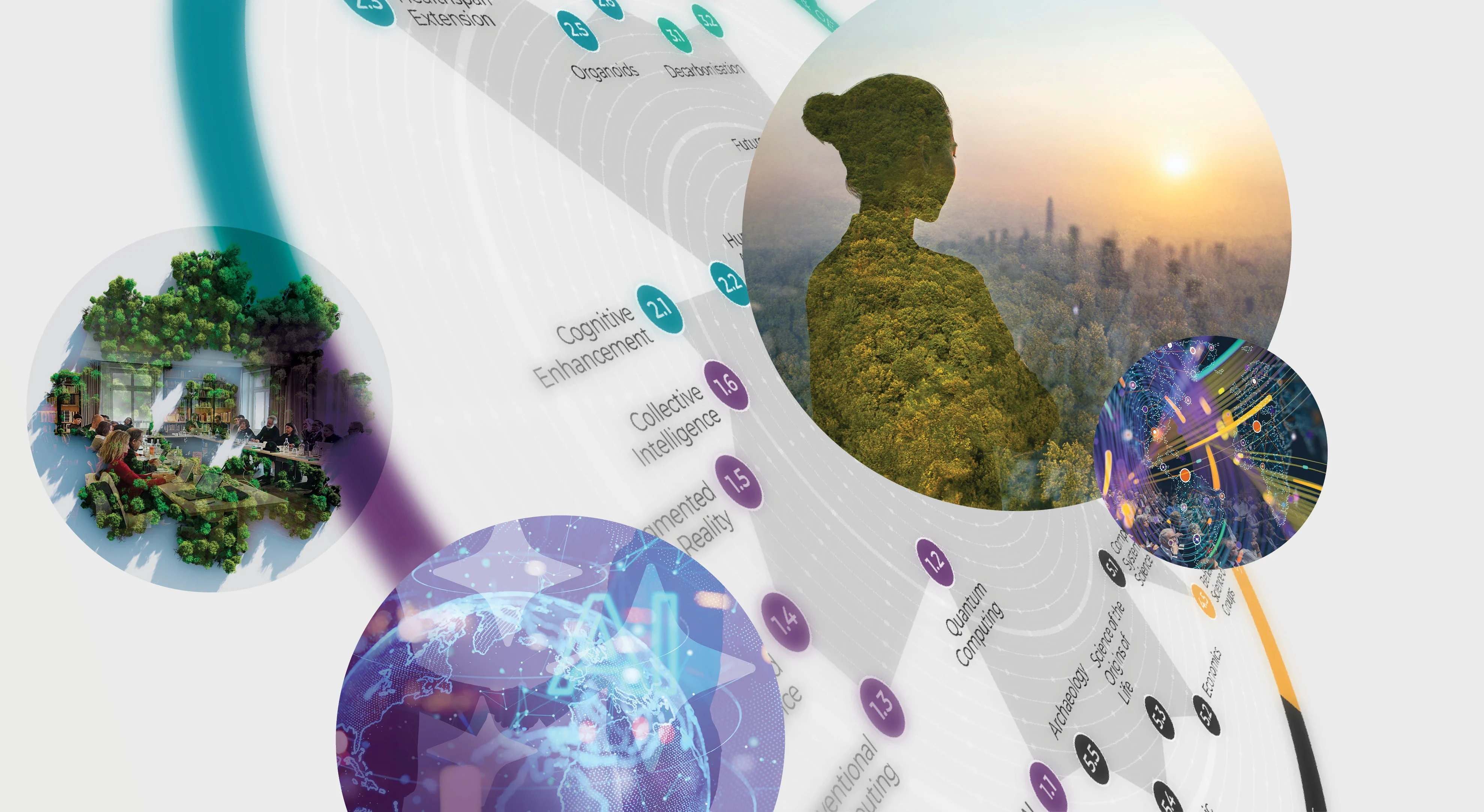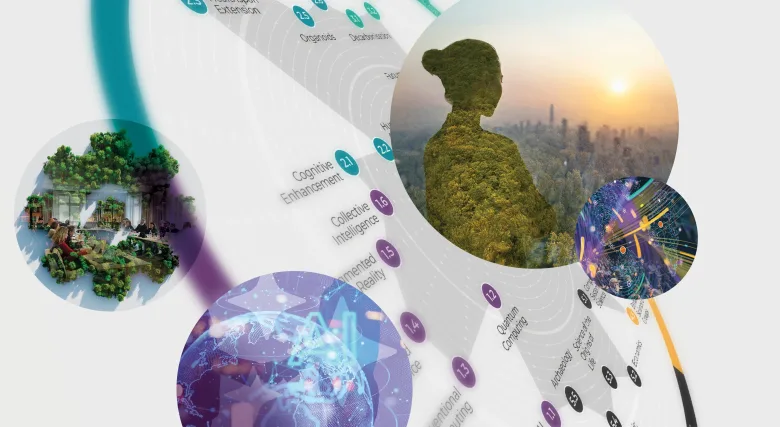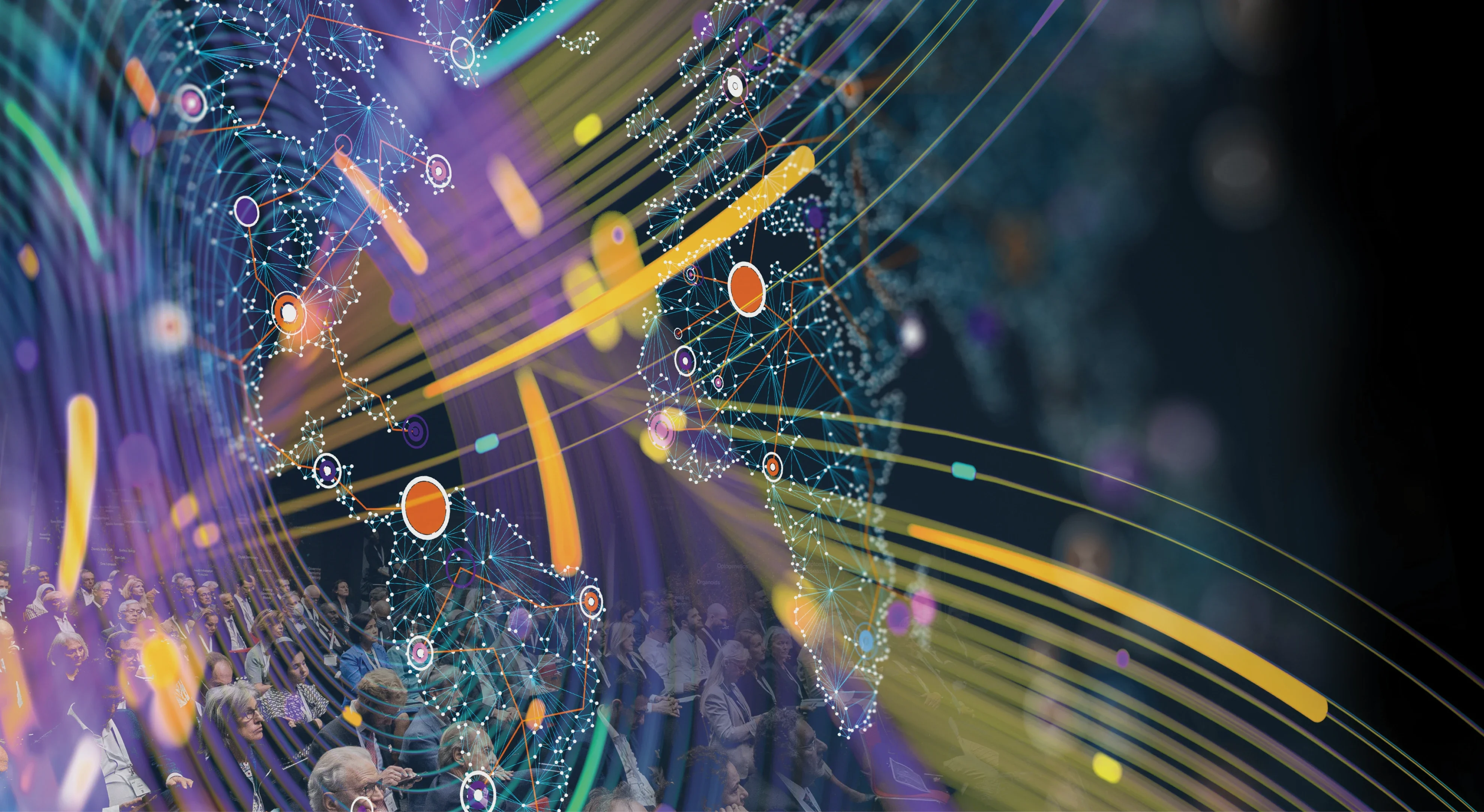Expanding upon the scientific insights included in the Radar, we again include three cross-disciplinary “lenses” through which to interpret anticipated breakthroughs. These are the GESDA Philosophical Lens, this year with a focus on eco-augmentation and humanity’s present and future relationship with the planet; the GESDA Geopolitical Lens, with a focus on how AI could affect the future of peace and war; and the GESDA Science Lens, through which we consider how anticipated breakthroughs themselves could affect the process of scientific discovery and knowledge creation.
Finally, this edition of the Radar integrates for the first time four community-based “pulses”: on science, diplomacy, impact and society. The Pulse of Science, developed with our scientific community, reflects expert opinions on anticipated future breakthroughs in different areas of science and technology. The Pulse of Diplomacy highlights areas of diplomatic interest related to these possible breakthroughs, including key discussions from GESDA’s 2023 Science and Diplomacy Anticipation Summit. The Pulse of Impact tracks private investments and company creation in relation to science breakthrough trends, and The Pulse of Society captures people’s changing sentiment towards anticipated advances in science and innovation.
This report provides a record of the cutting-edge scientific advances anticipated across fields relevant to eco-augmentation, and identifies key opportunities for the future.
Recent advances in synthetic biology, stem-cell biology, ecosystem sensing and artificial intelligence now make it possible, in principle, to deliberately modify ecosystems and enhance their functions: “eco-augmentation”. At the second GESDA Villars Anticipation Workshop, leading researchers from different disciplines met to discuss issues pertinent to the future of eco-augmentation across three interrelated themes: reading and writing ecosystems, transitioning ecosystems and hacking (co-)evolution. Such eco-augmentation has the potential to undo some of the damage humans have done to ecosystems, to stabilise, restore or enhance ecosystem services, and to increase ecosystem robustness to avoid catastrophic collapse.
A panel of leading philosophers, convened by GESDA, reflect on how advances anticipated by the participants of the Villars 2024 Anticipation Workshop on eco-augmentation will reshape our understanding of who we are as humans, how we live together as societies, and how we relate to the planet. This philosophical lens provides a discussion of the different relationships between human beings and nature, and our responsibility as humans in an age when the power of technology is growing exponentially.
In collaboration with the Geneva Centre for Security Policy (GCSP) and the School of International and Public Affairs (SIPA) at Columbia University, New York, the geopolitical lens discusses how artificial intelligence might reshape peace, war and security in the future. As we have entered a renewed era of geopolitical competition, new technologies will provide essential capabilities for warfare, security and peace-building. This discussion paves the way for further debates and action to promote future peaceful deployment of emerging technologies.
Breakthroughs in science not only have the potential to radically alter society, but also will influence how scientific research is carried out — a recent example being how AI is changing research practice across disciplines. The anticipated breakdown of traditional scientific disciplines, the generation of increasingly ambitious questions requiring larger and larger collaborative networks, the increasing reliance on advanced archival architectures for intelligent data mining and the possibility of future automated laboratories that are directed by artificially intelligent machines all have vast implications for the practice and role of research in the future. This GESDA perspective on the future of research initiates reflections on how breakthroughs anticipated by scientists will themselves influence the way science and research is practised, and what this could imply for knowledge creation in the future.








